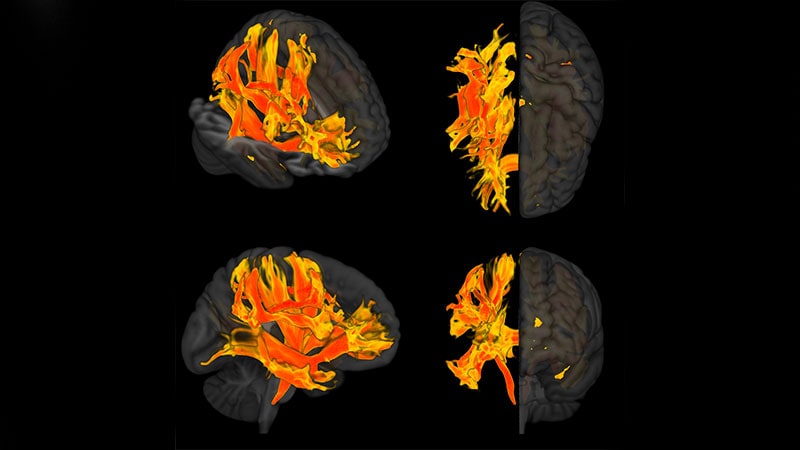Specific Brain Damage from Hypertension Linked to Cognitive Impairment
核心概念
Hypertension causes specific brain damage leading to cognitive impairment.
摘要
The study identifies brain regions damaged by high blood pressure, linking hypertension to cognitive impairment. Using genetic data and MRI scans, researchers pinpoint nine brain structures affected by blood pressure. The findings suggest a causal relationship between hypertension and cognitive decline, emphasizing the importance of prevention and treatment. Identifying these structures could help assess the risk of cognitive impairment in hypertensive patients and explore new treatment targets.
客製化摘要
使用 AI 重寫
產生引用格式
翻譯原文
翻譯成其他語言
產生心智圖
從原文內容
前往原文
www.medscape.com
Specific Brain Damage Links Hypertension to Cognitive Impairment
統計資料
"Using Mendelian randomization techniques, they identified nine brain structures related to cognitive impairment that are affected by blood pressure."
"They identified 200 brain structures that were causally affected by systolic blood pressure."
引述
"Our study confirms a potentially causal relationship between raised blood pressure and cognitive impairment, emphasizing the importance of preventing and treating hypertension."
"Some of these structures, including putamen and the white matter regions spanning between the anterior corona radiata, anterior thalamic radiation, and anterior limb of the internal capsule, may represent the target brain regions at which systolic blood pressure acts on cognitive function."

深入探究
What are the implications of identifying specific brain structures affected by hypertension for future treatments?
The identification of specific brain structures affected by hypertension has significant implications for future treatments. By pinpointing the brain regions that are causally linked to cognitive impairment due to high blood pressure, healthcare professionals can tailor interventions more effectively. This targeted approach may lead to the development of personalized treatment strategies that focus on protecting these vulnerable brain structures. Additionally, understanding the specific brain culprits of the hypertension-cognitive impairment relationship opens up avenues for exploring new therapeutic targets. Future treatments could potentially involve interventions that directly address the damage caused by high blood pressure in these identified brain regions, thereby mitigating cognitive decline.
How might the findings of this study impact current approaches to hypertension management?
The findings of this study have the potential to revolutionize current approaches to hypertension management. By elucidating the relationship between hypertension, changes in brain structures, and cognitive impairment, healthcare providers can adopt a more holistic and proactive stance towards managing high blood pressure. Understanding the specific brain structures affected by hypertension allows for a more targeted and precise treatment approach. Healthcare professionals may prioritize monitoring these brain regions in individuals with hypertension to identify those at higher risk of cognitive impairment. This personalized approach could lead to more tailored interventions, such as intensive blood pressure control strategies for individuals with compromised brain structures. Overall, the study's findings may prompt a shift towards more individualized and brain-focused hypertension management strategies.
How can understanding the relationship between hypertension and cognitive impairment lead to advancements in dementia prevention?
Understanding the intricate relationship between hypertension and cognitive impairment holds great promise for advancements in dementia prevention. By identifying the specific brain structures affected by high blood pressure that are causally linked to cognitive decline, researchers and healthcare providers can target these areas for preventive interventions. This knowledge may pave the way for the development of biomarkers that can predict cognitive decline in individuals with hypertension, enabling early detection and intervention. Furthermore, a deeper understanding of the signaling pathways and molecular changes in these brain regions could lead to the discovery of novel therapeutic targets for dementia prevention. By addressing the vascular damage caused by hypertension in these critical brain structures, future interventions may be able to more effectively combat cognitive decline and reduce the risk of dementia. Ultimately, unraveling the hypertension-cognitive impairment connection has the potential to significantly advance efforts in dementia prevention.
0
